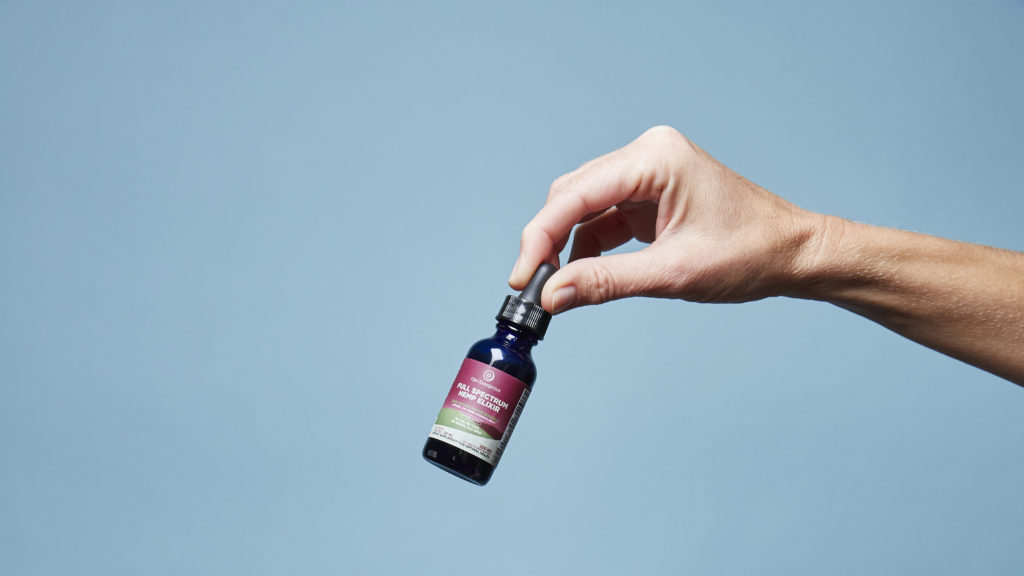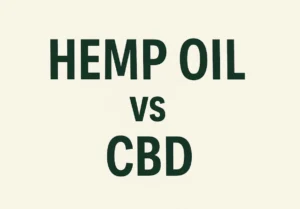Navigating the wellness world can be confusing, especially when terms like “CBD oil” and “hemp oil” are often used interchangeably. Though they originate from the same plant species—Cannabis sativa—these oils are vastly different in composition, benefits, and usage. Let’s clear up the confusion and break down the real difference between CBD and hemp oil.
Are Hemp Oil and CBD Oil the Same?
The short answer: no. Here’s why.
Difference in Plant Parts Used
- CBD oil is typically extracted from the flowers, leaves, and stalks of the hemp plant—parts known to contain a high concentration of cannabidiol (CBD).
- Hempseed oil, on the other hand, comes from cold-pressed hemp seeds, which contain no CBD.
Cannabinoid Content
- CBD oil contains measurable levels of cannabidiol and potentially other cannabinoids.
- Hempseed oil contains no cannabinoids like CBD, THC, or CBG. It is valued instead for its rich nutritional profile.

What Is Hempseed Oil?
Often labeled as “hemp oil” in supermarkets, hempseed oil is widely recognized for its nutritional benefits, not its cannabinoid content.
Nutritional Profile
- High in omega-3 and omega-6 fatty acids
- Rich in vitamin E and essential amino acids
- Known for its skin-friendly properties and often used in beauty products
Common Uses
- Cooking oil substitute for salads and low-heat dishes
- Ingredient in moisturizers, soaps, and lotions

What Is CBD Oil?
CBD oil is crafted through CO₂ or ethanol extraction methods that isolate cannabinoids from the aerial parts of the plant. It’s then infused into a carrier oil such as MCT or hempseed oil.
What “CBD Oil” Typically Refers To
- Products containing CBD in various forms: full spectrum, broad spectrum, or isolate
- Used in tinctures, capsules, topicals, and edibles
Full Spectrum vs Broad Spectrum
- Full spectrum CBD includes trace amounts of THC (≤ 0.3%) and other cannabinoids like CBN, CBC, and CBG.
- Broad spectrum CBD is THC-free but still contains other beneficial cannabinoids and terpenes.

What Does Full Spectrum Mean?
Under U.S. law, full spectrum hemp-derived CBD must contain no more than 0.3% THC. This tiny amount is non-intoxicating but is believed to play a role in a potential synergistic benefit called the entourage effect.
Role of Other Cannabinoids
Cannabinoids like CBG (cannabigerol) and CBN (cannabinol) are being researched for their unique properties. Though research is still ongoing, some evidence suggests that using multiple cannabinoids together may enhance the product’s overall effectiveness.
The Entourage Effect Explained
Also known as the “ensemble effect,” the entourage effect refers to the idea that cannabinoids, terpenes, and other hemp compounds may work better together than in isolation. While the theory is promising, it is still under active scientific investigation.
Why Water-Soluble CBD Matters
One of the challenges with traditional CBD oils is bioavailability—how well your body absorbs the compound.
Bioavailability Benefits
- Water-soluble CBD formulations can be more easily absorbed by the body.
- Products using nanoencapsulation technology, such as those by Ojai Energetics, encapsulate CBD in tiny particles, potentially improving its absorption and effectiveness.
Can a Product Contain Both Hemp Oil and CBD?
Yes. Many products combine hempseed oil as a carrier with CBD extract for added nutritional benefits and smoother application. These hybrid products aim to offer the best of both worlds but should be clearly labeled to avoid confusion.
Frequently Asked Questions (FAQ)
No, hempseed oil contains no CBD or other cannabinoids.
No. Hemp oil refers to hempseed oil, which is used for nutrition and skincare. CBD oil is derived from hemp flowers and used for its cannabinoid content.
While CBD is being researched for its potential role in supporting calm and relaxation, hemp oil is not known to affect mood. It’s best to consult a healthcare professional for personal wellness goals.
Full spectrum CBD contains all naturally occurring cannabinoids from the hemp plant, including ≤ 0.3% THC.
Comparison Table: Hemp Oil vs. CBD Oil
|
Feature
|
Hempseed Oil
|
CBD Oil
|
|---|---|---|
|
Source
|
Hemp seeds
|
Hemp flowers/leaves
|
|
Contains CBD?
|
No
|
Yes
|
|
Common Uses
|
Cooking, skincare
|
Wellness products
|
|
Cannabinoids
|
None
|
CBD, possibly THC, CBG, etc.
|
|
Regulatory Status
|
Food/cosmetic
|
Dietary supplement (under review)
|
Final Thoughts
Understanding the difference between CBD oil and hemp oil helps consumers make informed, safe, and effective choices. Whether you’re seeking nutritional support or exploring cannabinoid wellness, knowing what each product truly offers is essential.
Ready to try CBD but not sure where to start?
Our CBD Starter Kit is designed to help you experience full spectrum CBD in a safe, bioavailable way—with water-soluble technology that works with your body.













